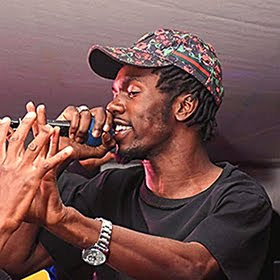Yesterday I attended a Women with Disabilities event in the Constituency. I didn’t go with a planned presentation as I normally would when ...
Yesterday I attended a Women with Disabilities event in the Constituency. I didn’t go with a planned presentation as I normally would when I meet a special interest group. This is because my aim was listen and learn, to understand and to empathise. It was not just an eye opener, but a heart opener too. We take so much for granted as a society. We choose tokenism over genuine understanding. We forget. We railroad. We exclude. We don’t do enough. We prescribe.
1. We need to use inclusive language and champion the rights of persons with disabilities. We should never say “they are saying...” as though we do not believe in their cause. We must not say “persons living with disabilities” as if their condition is something external to them that they are living with. Rather we must say “persons with disabilities”. Sensitivity is key.
2. Persons with disabilities require a strong network of support and we must always be available to give it.
3. We must avoid tokenism especially when it comes to disability-friendly infrastructure. It’s not just about building a ramp. Are the tables we use too high? Are our chairs comfortable? Do our spaces facilitate mobility? Do we make literature and information available in sign language and Braille? Do we ask persons with disabilities whether they need help? Are weSometimes we overcompensate and make them uncomfortable. Are we careful to ensure that we don’t make persons living with disabilities feel like a burden? Are we alive to ensuring women with disabilities are safe and catered for eg if they have a height impediment and need to have their biometrics taken - is their a woman officer to help?
4. Do our organizations and campaigns have a disability advisor to help us achieve inclusivity?
5. What impact does political violence have on persons with disabilities? Do we consider that this often leads to exclusion because of the magnified safety threats?
6. Do we pigeon-hole persons with disabilities in the political space and confine them to speaking only on disability rights? Are we including them in the political process including voting them into Council and Parliament?
7. Have we considered our attitudinal problems towards disability rights? Why do we place them at the bottom of the list?
8. Are lawyers championing the cause of persons with disabilities? Are we holding government to account to uphold the Constitutional rights of persons with disabilities as well as ensuring that the government complied with the Disabled Persons Act?
The Yellow campaign pledges to be the most inclusive and disability-friendly political campaign in Zimbabwe.
We are engaging partners to translate our campaign literature into Braille and audio.
We are on the hunt for a disability advisor for our campaign.
We are recruiting persons with disabilities as volunteers. No campaigning for them without them.
Our Legal Aid arm will do disability rights cases including ones related to the Electoral Act pro bono including any court appearances.
We will ensure we educate persons with disabilities on their rights in the voting booth.
Our hearts and ears will remain open to champion their causes.
We will be the most inclusive and disability-friendly campaign in Zim.

















COMMENTS